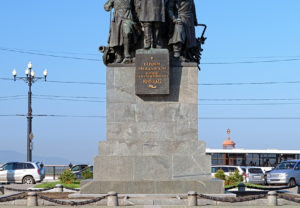Do you see what we see? It’s in the headline. Look closely.
It’s akin to saying you got paid for volunteering, or that you got jacked up and wired on decaf, or that your favorite soccer player has a “great arm”.
Yeah. You don’t “buy” food stamps. They’re given to Americans who are struggling to make ends meet, as a way for them to feed both themselves and/or their families.
But that didn’t stop a Fort Benning-based United States Army soldier recently, as he’s been arrested by local Georgia police for purchasing the government assistance “electronic benefit transfer cards” after a covert sweep uncovered the troop at Sugarloaf Parkway grocery store snagging the EBT cards for $300 to $600 a pop.
Eugene Clark, 39, actually purchased them from an undercover officer numerous times. Oops.
According to the official report, the first time Clark met the law enforcement official in March, he was wearing an Army sweatshirt with some identifiers emblazoned on the front. The last purchase took place on April 22. He was then taken to Gwinnett County Jail and charged with “financial transaction card fraud and fraud in obtaining public assistance, food stamps or Medicaid.”
But just what is the point in doing this at all? What’s the benefit (no pun intended)?
The Army Times explains:
Gwinnett County Police Cpl. Michele Pihera said such illegal transactions hurt the taxpayers and the poor who need the benefits, while the buyers and sellers cash in on the benefits for their personal use.
“The person who is buying the EBT card wants to get double the credit. And the person who is looking to sell the EBT card wants quick cash. But it’s against the law. The person making the purchase of the EBT card could be using it for personal purchases [of groceries], or he could be using it to sell for a greater value. These are taxpayer funds” that are being, in effect, stolen, Pihera said.
According to the state of Georgia, their Human Resources’ Benefits Recovery Unit dealt with 3,881 cases of food stamp misuse and fraud in 2015 alone. They estimate it cost their taxpayers a whopping $12.2 million.




































